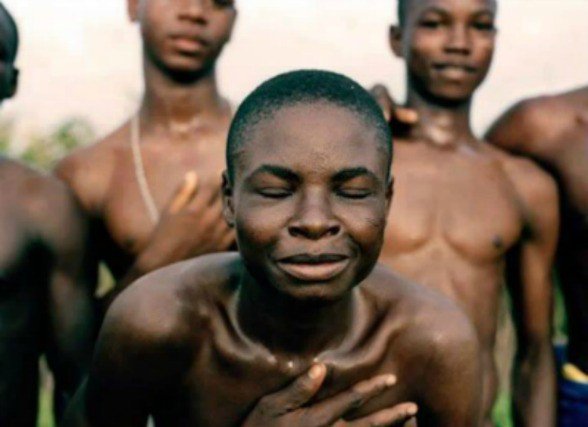I have been thinking that if it is true that one can give a dog a bad name and hang him, why can’t the converse be true? After all, repeating something over and over reinforces the impression — and it surely can work both ways. Also, how about substituting ‘person’ for ‘dog’, for the proverb is after all about humans and not dogs.
When a mother proudly tells her visitors, ‘Arun always shares his toys with others!’ it could make even the usually surly child happily share his toys because his mother believes he is sweet. Mustn’t he prove her right by sharing his toys?
Or, ‘I know you are going to finish your eggs in no time, not like that child we saw in the train who was troubling his mother so much!’ – could have the brat stop playing with his food, as he tried to recall the disobedient kid in question before gobbling up his breakfast in double quick time.
I guess such tricks mostly don’t work with even very small children these days, as children these days are smart enough to see through the praise. Some are even defiant enough to say, ‘No, I am a bad boy! I won’t share my toys/eat the food!’ – they have enough bad role models to admire and follow.
Psychologists would tell you that bad behaviour often denotes a craving for attention. This applies not just to children but also adults – especially those in public life – only the ‘attention’ here gets translated into ‘publicity’ which keeps them in the public eye. And in order to achieve this end they would go to any extent. A controversial statement before the release of their movie, a rumour about a scandal involving the hero or heroine, a sensational ‘breaking news’, tantrums and wild allegations as is being done by a certain losing politician in Delhi.….
Anyway, I am digressing from the topic in hand.
Coming back, there are some parents who constantly pull down their children in innumerable ways as a woman I used to know. Even while introducing me to her young boys, I remember her saying, ‘Aunty has two sons and both of them are brilliant. And look at you!’
I felt most embarrassed and angry – especially since I had not even told anything about my sons to her. And here she was destroying the confidence of those young boys or at least making them feel small in front of a stranger. Perhaps she thought she was motivating them to perform better. Even assuming they were not great students or whatever, this could have had the opposite effect. They might just decide that since their mother thinks the worst of them, there was no point in doing well!
If such is the case with children, adults are worse. They turn criticism into an excuse to be insufferable. I know of many people who say contemptuously, ‘I am a bad person, and I can behave as badly as I want! So there!’ They clearly are not under any pressure to prove their good credentials to the world and so glory in their notoriety. As I said, such anti-heroes often become popular and role models for children. Also, often rudeness is confused with honesty. So such people also take refuge under the guise of ‘honesty’ while behaving despicably and shooting their mouths off. The latest ploy is the bandy the term FOE (Freedom of Expression), never mind it creates loads of actual foes for them!
By demonizing and attributing all sorts of bad intent to a person’s words and actions, one is actually giving them the freedom to be those very same things. There is no motivation for the bad dogs to reform, for no matter what they do, they will be demonized and vilified and might even end up turning into criminals.
Of course this is not to say that offenders and corrupt people have become that way because they have been labelled as criminals and corrupt. Many are naturally that way and giving them the label of a ‘bad dog’ so to speak, just gives them the freedom to act as one.
Coming back to the question I had put at the outset, if condemnation can elicit a defiant reaction, don’t you think a reverse reaction is possible by giving them a good label? Of course, this can often be difficult, even impossible.
- ‘Even children can see through false praise;’
- ‘It is not possible to praise someone who is an acknowledged crook;’
- ‘Unless we point out the faults of the person, how will he reform?’
….all valid arguments. But by and large most children both small and big react positively, trying to live up to the virtues attributed to them. Of course, it is important to pick out a virtue that is worth praising, and believe me, all of us have loads of virtues if we just cared to look for them. No one is all virtuous or villainous. Why not focus on the good, and ignore the bad unless they are hardcore criminals? Experiments in jails even with such criminals have turned up encouraging results.
To prove this is possible, I am sharing this story about the South African tribe of Babemba. It employs a unique method to reform anyone who has committed an offence. The Babembans genuinely believe that the person has just strayed from his inherent nature of goodness and needs to be reminded of it.
So the whole village assembles in the square and surrounds the offender. And for two days everyone – including children – take turns to recall and recount every good thing the person has done, every virtue he has.
Now imagine the effect on that person sitting in the middle. He knows and the entire tribe knows he has committed an offence, and yet here they are – the entire village praising him! Ever so often we tend to forget the good deeds we might have done, and at other times we might have dismissed something as being a trivial thing. To have someone not only remember that and share it with the entire village can be a humbling experience. It can not only humble but also shame him to see how well he is regarded and how badly he has behaved.
So at the end of it all, after being bombarded by such positive feedback from the villagers, the person comes to the realisation: ‘But I am good!’
And with that kind of affirmation, he or she can’t continue being bad, can they? And the Babembas have brought back another person to his true nature of innate goodness. Is there any wonder then that the offender reconnects with his inner core of goodness or divinity and repents and reforms?
Come to think of it, isn’t this what our vedas say? That there is Divine in every living being and that when that Divine is exalted the life blooms and thrives? That we should look for it in every being? That the not-good in the being can be overcome by addressing this Divinity?
There is so much wisdom in our ancient cultures that we would do well to tap into them and incorporate them in our daily lives.
Images Courtesy: Top – quotescover.com Bottom:The Good Men Project








The custom of this tribe seems so amazing ! So different from what we are used to in today’s world. And I completely agree with you. We can motivate with goodness too. We just need to make it genuine I guess coz children can definitely see through false praise.
LikeLike
Motivating with praise has to be genuine for sure. when even kids can find out a false note, there is no way an adult would miss it. That is the whole idea, isn’t it? Also, I feel that it affords the other party to look for and find good things about the person being accused too.
LikeLike
Loved the custom of the South African tribe. Imagine how it would help so many of us!
Thanks for your practical wisdom. Love reading.
LikeLike
Traditional wisdom is always the best, but we should adapt them to suit the times and situations, that’s all. Just saying that it was good for those times and reject them would only makes us the poorer, don’t you think? And thanks for the appreciation 🙂
LikeLike
Many years ago a senior colleague used a pithy phrase to recommend what you’ve written here. She would say “Praise, don’t perfect!”
She thought it a better strategy to praise someone for desirable virtues- even when they did not possess them- than to try and make them perfect by criticising them.
The strategy was very effective. But there was one dude on whom it did not work. When he was ever praised for something, he became complacent and stopped making an effort to actually acquire the virtue he was praised for. And he turned arrogant (since he saw himself as virtuous now) to boot.
Yeah, they walk among us… idiots like those.
LikeLike
With all due respects to your professor, perhaps she praised in general terms instead of focusing on some specific aspect or deed? Because if one were to say, ‘you are so generous’, it might not have the same effect as saying,
‘I liked the way you helped that woman at the bank the other day,’ will give the person to identify with some specific deed that was worthy of praise. Even the tribe I have talked about focus on actual good deeds and qualities of the person they are addressing. Otherwise, as you say the person might just gloat in their non-existent goodness and refuse to rise to a higher level.
LikeLiked by 1 person
Ah! Now that’s the way to do it! It would never have occurred to me in a zillion years! And it actually didn’t occur to me in almost 20 years! Thank you Zephyr! This is a nugget I will cherish! Hugs!
LikeLike
Hugs right back!
LikeLike
From one blog glorifying mothers I came here and found a realistic approach…I have seen many mothers totally crushing the child either by their expectation or comparison.
LikeLike
Oh Renu! I read your blogpost post Mother’s Day 🙂 Thanks for liking my perspective!
LikeLike
Loved the example you shared of the South African tribe. I can quite imagine how that must have worked. Though, I must say that with certain people and seeing how brash they are, I wonder if this strategy would work. About showing positive behaviour, I have noticed that with the younger son when I smile and ask him to do a chore with some encouraging words or words of praise, he almost always does them even if he was going to do something else. So yes, a happy tone may work sometimes. Enjoyed the post.
LikeLike
As usual I had put in the disclaimer that habitual offenders and hardened criminals are immune to anything positive, though when Kiran Bedi was in charge of Tihar, she had tried the experiment of bringing positivity into the lives of the inmates by engaging them in positive activities including meditation. After all, even they must be yearning to be liked by people, right?
That Gautam is still an innocent child is evident from his reaction to words of praise. Of course, you must be meaning the words, else he would have seen through them and refused 🙂
LikeLike
Our Vedas teaching is rich in learning and sad that we have forgotten them. The South African tribe reaffirm this learning and don’t get how some parents compare their progeny with others. This fetters personal growth and seen so many of us doing that. Reason why I have stopped believing in competition for at every instance in life, we grow as unique individuals moving closer towards our dreams.
LikeLike
The reason we have not been able to live according to the wisdom of our ancestors is because we think it should be in the form of a book with a set of rules of dos and donts. Our scriptures are closer to life and nature and if we only lived with mindfulness, we would accomplish a lot. As for competition, I agree with you. We only need to work on ourselves, so that we are better tomorrow that what we are today and this applies even to academics and other fields.
LikeLiked by 1 person
our vedas and upanishads and civilisation has teachings based on circumstances and merit.everything said in scriptures have varied dimensions and they can’t be quoted generally.i can write some of them,
according to vedas, a soul takes nearly 72 million years(approx) for a soul to attain perfection and to expire.until then it keeps changing one body to another.so people are at different stages with different characteristics in any generation and you can change these characteristics momentarily but not permanently and may change permanently in rarest of rare cases. when we give a good name ,it influences momentarily but what comes with gene or blood won’t change.i don’t believe in soul thing but our scriptures do make sense when we look at day to day people behaviour along generations.
there is a ancient saying”THE ATTITUDE YOU GOT BY BIRTH WILL PERISH ONLY WITH FIREWOOD DURING FUNERAL”. its true in most of cases.there are lot of ancient sayings and they are true based on merit and circumstances. i myself tried to reform people/organisations but it was momentary and they are back to square one,so we can’t change people permanently.when vedas say there is divine in every living being,it means divinity exists as long as person has flawless mind.goodness exists in every living being but once mind gone corrupt is nearly impossible to get back to its original state of flawlessness where divinity exists.
life of tribals/villagers and modern people who live in cities is different. tribals/villagers life is interdependent and they can’t live by ignoring one of their like in cities where life is more independent and less attached.so we should deal people/lives based on merit. lessons from our scriptures are not for everyone and not for every circumstance.
whenever student committed grave mistake in my school,my principal used to make student to stand in front of whole school assembly and made him to apologise to whole school and made him/her to promise that he/she will not repeat in future. this has brought change momentarily in some students and very few did change permanently and one sensitive guy committed suicide and died due to shame. my principal had only one rule for every circumstance and for every individual without knowing that its impact varies from person to person.
whenever i deal people,first thing i do is read people minds and understand them and later proceed on merit.i don’t give a good name to every person and its really not a wise stance.
my last line to everyone,one can’t gain wisdom by reading ancient scriptures/meditation or praying gods. greater magnitude of wisdom or real wisdom is attained when you lead morally right life from childhood or when you lead life naturally human.i never worshipped gods and never followed scriptures.
magnitude of wisdom/intellect = no of world perceptions within = amount of flawless life you have led.
above equation remains true as long as human generations survive on earth. ok that equation is from me after self-realisation during teenage.
LikeLike
Thank you for sharing your perspective, Rohan. Self-realisation in teenage! You must be an evolved soul indeed!
LikeLike
hahaha is that sarcasm or thinking that am exaggerating .even you can be that if you live certain way. below is how simple it is
http://pepaltree.blogspot.in/2009/09/eckhart-tolle-on-mind-and-thoughts.html
LikeLike
A nicely analyses articleNothing works wonders than a gentle word of praise,a friendly pat and motivating gesture.if it works even in a few cases,the purpose is served.
What happens generally to spoil a child is when one of the spouses rushing to support the erring or misbehaving child when the other spouse is disciplining.This foolish behaviour of one spouse embolden the child to repeat.Punishment to discipline should be immediate,consistent,certain,the quantum proportionate to the mischief and with no favoritism.Sadly most parents fail in this respect
LikeLike
Yes, a word of praise goes a long way. Punishment should always be proportionate to the misdeed and consistent as you have rightly pointed out. Unfortunately, parents use this to settle scores with each other and defeat the whole purpose. I have just extrapolated the theory to include adults as this custom of the South African tribe really impressed me.
LikeLike